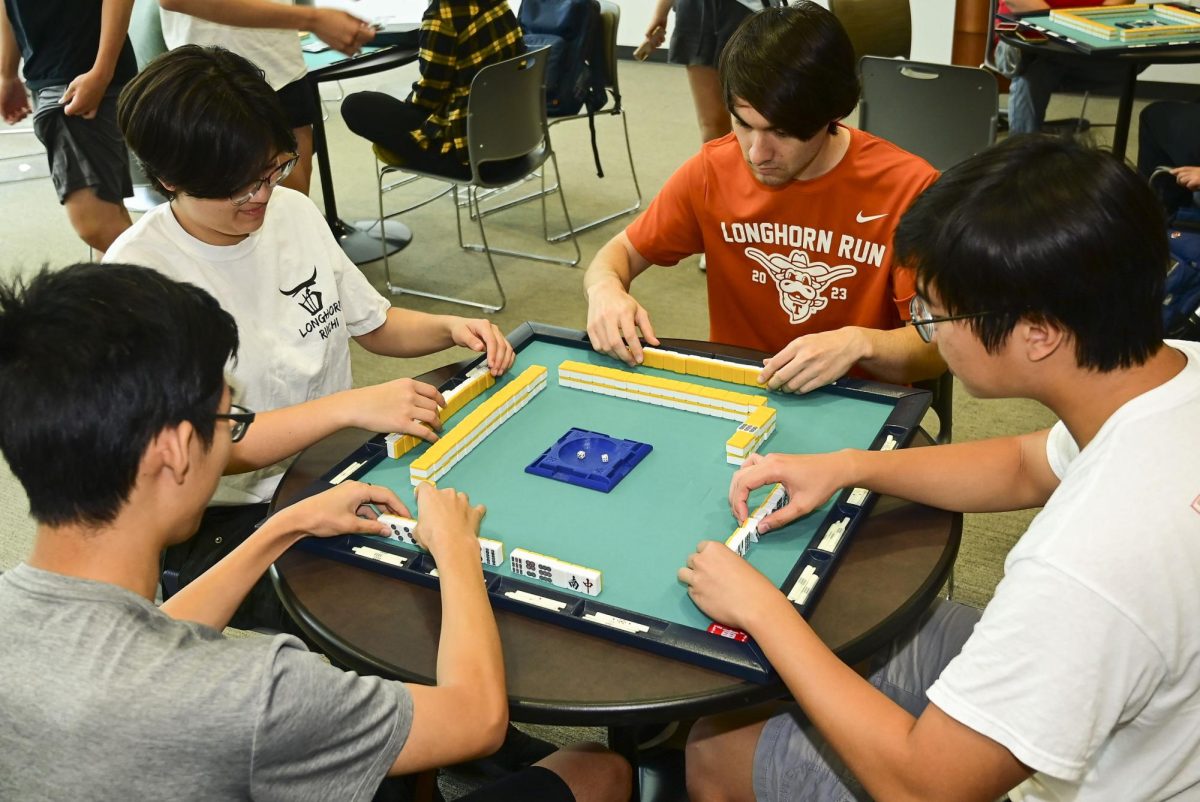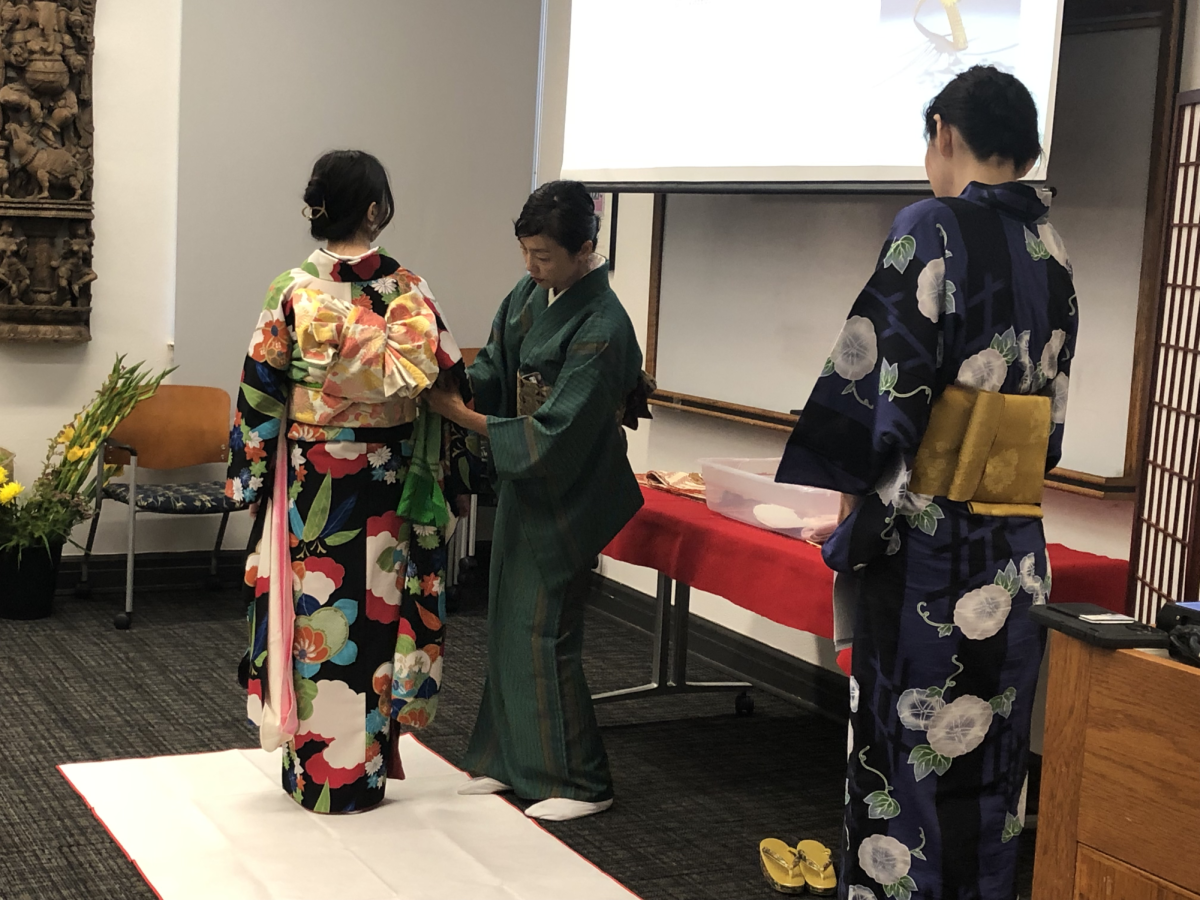The click-clack of mahjong tiles fills the air as Longhorn Riichi members attempt to complete their hand before their opponents. Suddenly, computer science freshman Allison McHugh calls out “Yakuman,” a rare and high scoring combination, and stands up with excitement.
“When I joined, I knew nothing,” McHugh said. “Now I’m able to compete with club leaders and actually win games against them.”
According to their website, Longhorn Riichi aims to popularize Riichi, a Japanese variant of mahjong, by creating a community for both casual and competitive players. Riichi mahjong differs from Chinese mahjong and other variants because its rules encourage more interaction, said Peter Gao, the club’s founder and president. Gao, a computer science master’s student, said he originally played Chinese mahjong.
“As I learned more variants of mahjong, I found out that Riichi is actually the very best, the most fun — the most competitive,” Gao said. “More people deserve to know about this game.”
Riichi mahjong’s popularity ranks lower than other mahjong variants in the U.S., with only 179 players in the American Riichi Mahjong League, according to the league’s website. Adam Hanzel, the Longhorn Riichi outreach officer, said the club boasts members from all over UT and even outside the University, since no other Riichi clubs exist in Austin.
“There are big pockets of Japanese mahjong in certain areas of the country,” said Hanzel, a global policy studies masters student. “It is very niche, but that niche is very strong.”
Hanzel said as a result of increased outreach to freshmen, the club saw triple the amount of people attending meetings this year. When tabling at organization fairs at the beginning of the semester, Hanzel said he learned some people thought of mahjong as an exclusively Asian game.
“When you give a rough statistic, such as half the club is ethnically and nationally non-Asian (even though the demographic makeup) doesn’t matter, it shocks them,” Hanzel said. “That’s how you get people out of the idea that mahjong is somehow only a game accessible to those with Asian heritage.”
McHugh said at the beginning of every Sunday meeting, Longhorn Riichi presents a ten-to-fifteen-minute lesson about a Riichi topic and walks newcomers through their first games. McHugh said the club can only reserve their room in the William C. Powers, Jr. Student Activity Center on Sunday for two hours, but afterwards, half the members move downstairs and continue playing for another four hours.
Gao, who plans to graduate this fall and wants to continue promoting Riichi mahjong, said Longhorn Riichi may become more than just a UT club.
“My vision at the beginning was to start a region-based club, not a UT-Austin-based club,” Gao said. “It’s still open to people who are not students.”
According to the Longhorn Riichi website, the club also hosts regular online games and competes every semester in a competition against UT-Dallas. Joining and playing in Longhorn Riichi costs nothing, but participants can choose to buy a paid membership to help fund the club if they wish.
“I was an unpaid member for about two weeks, and then I realized, ‘Oh my gosh, this is really fun,’’” McHugh said. “I wanted to support the club. … It’s a part of me.”




















